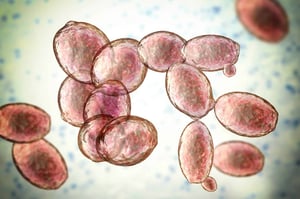Up to several years ago, the (very large) portion of DNA that appears to have no precise function was labelled “junk”, by researchers. Recently, however, a growing number of studies has shown (and is showing) that these areas of the genetic code can, in fact, also perform very important tasks, contrary to what was believed. In particular, two studies, published in the scientific journal Nature, reveal that several traits of “junk DNA”, called introns, are capable of activating a form of aid, when cells find themselves in an emergency situation.
The researchers focused their attention on yeast introns (but human beings also possess these DNA traits) and realized that if the yeast is starved and without food, it dies quicker than yeast that still contains introns. The second experiment, on the other hand, showed that yeast cells kept in a state of excessive saturation (in the lab), i.e. under extreme stress, received important help from introns (it seems that these DNA traits prevent the cells from excessive duplication).
The first study was conducted by microbiologists from the Université de Sherbrooke, in Canada (Quebec), whereas the second was conducted by researchers from the Massachusetts Institute of Technology (MIT) in Boston, USA. The ultimate meaning of this intron behaviour, partly defined as “bizarre” by the same researchers, is unclear, but it is thought that, when faced with unfavourable conditions, the junk sequences are activated to reorganize the life of the cell, assisting the expression or turning off of specific genes (i.e. the DNA traits capable of encoding a protein).
Each of the around 20,000 human genes is “connected” on average to 8 introns: therefore the total number of these junk traits is high. New studies will be carried out to describe their functions and characteristics, and also to check if this “emergency” reaction exists in human beings. If so, it could also be used for new therapies in the future.

